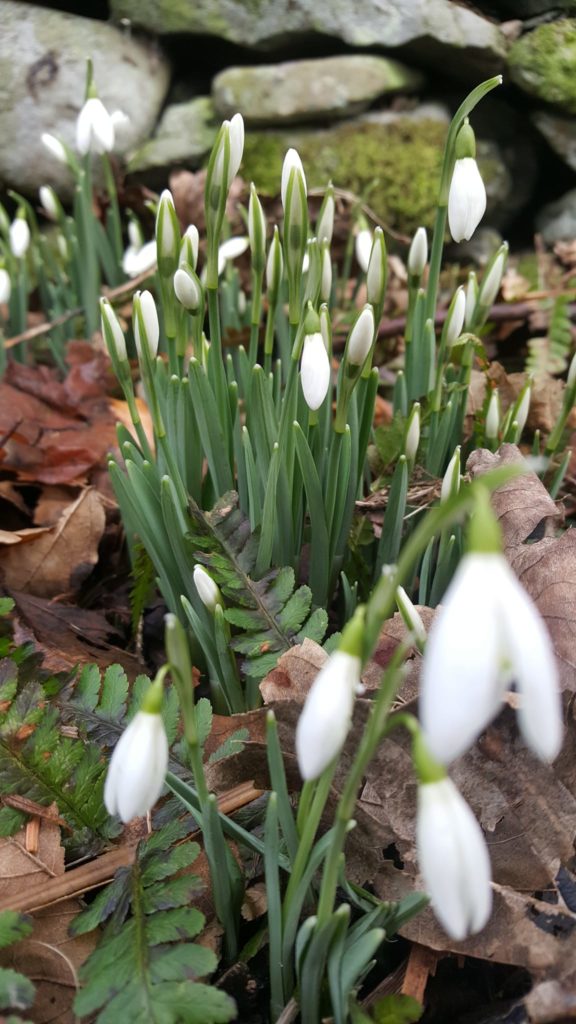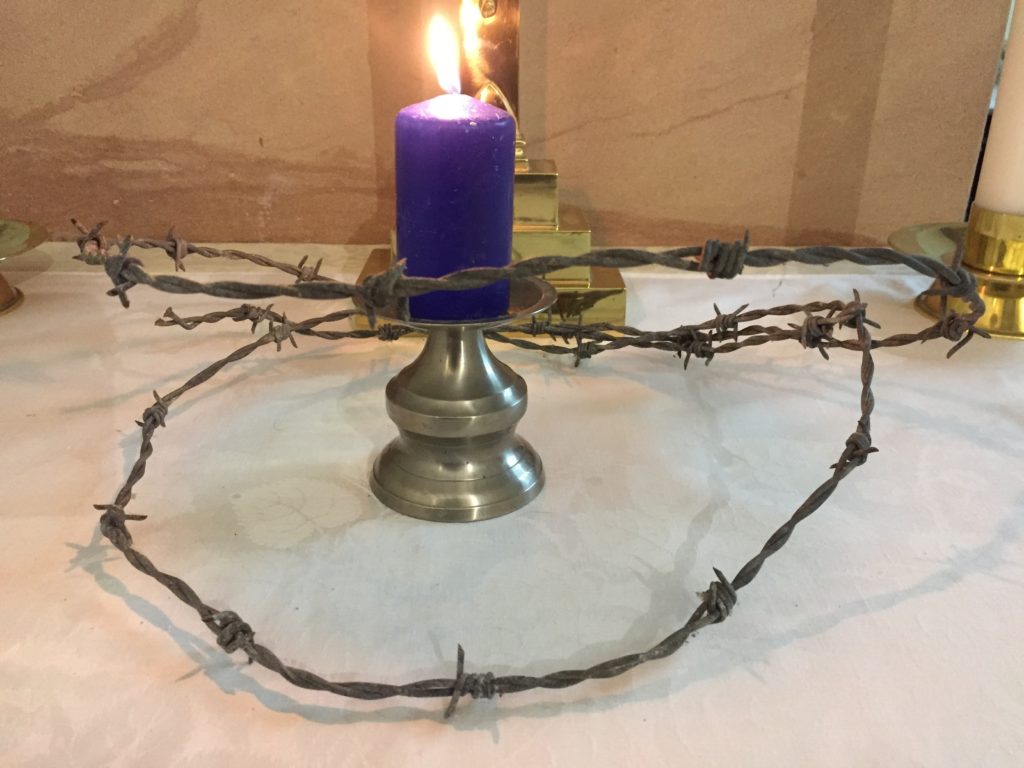“ Chwe diwrnod yn ddiweddarach, fe gymerodd Iesu Pedr, Iago ac Ioan, ei frawd, a’u harwain i ben mynydd uchel ar eu pennau eu hunain; ac yno yn eu gŵydd fe newidiwyd ei wedd, ei wyneb yn disgleirio fel yr haul, a’i ddillad yn wyn fel y goleuni.”
O Matthew 17:1-9k
“Rwy’n eich gweld – yn ystyried os mae dim ond tryloywder breuddwyd yw Duw”
O ‘Rumours of Light’ gan Gideon Heugh.
Mae Efengyl heddiw, ynglyn a’r Gweddnewidiad, yn digwydd ar ol i Seimon Pedr sylweddoli mae’r Iesu yw’r Messeia, yr hyn sydd yn groes i
fyrddallter yn ei ddealltwriaeth fod hyn yn mynd i arwain at Ei farwolaeth cyn Ei Atgyfodiad.
Ar yr un llaw mae Seimon Pedr yn gwneud naid mawr mewn ffydd, cyn gael ei alw yn Satan gan Yr Iesu am fod yn faen tramgwydd.
Diolch i Dduw am nam ddisgyblion, y sydd, ta waeth, yn cael eu galw a’u defnyddio gan Dduw er Ei wasanaeth, pobol cyffredin y medrwn uniaethu gydant.
Dim ond Pedr, Iago a Ioan sy’n dilyn Yr Iesu i fynny’r mynydd – tydi hyn ddim yn brofiad ar gyfer pob disgybl, oherwydd nid yw pob peth gan Dduw yn addas ar gyfer pob credadwr.
Mae Mathew yn daethom fod yr Iesu wedi gweddnewid o’u blaenau, ei wyneb yn tywynnu fel yr Haul a’i ddillad yn bur wyn. Gydag Ef mae Moses ac Eleias, yn cynrychioli y Gyfraith a’r Prophwydion ond, wrth i hyn ddigwydd, mae Pedr, tra bod yn ymarferol, eisiau nodi’r achlysur. Wrth iddo son am godi tri pabell dyma gwmwl gloyw’n taflu’i gysgod drostyn nhw, a llais yn dod o’r cwmwl: “Dyma fy Mab, fy anwylyd, sydd wrth fy modd; gwrandewch arno.”
Mae’n wir, amdan Pedr ac efallai amdanom ni, ein bod yn rhuthro drwy materon pwysig yn lle eu llawn profi – efallai hefyd fod yna adegau lle dylem wrando fwy a siarad llai.
Does dim yn cael ei ddeud am ymateb Iago a Ioan ond, wrth i’r goleuni rhyfeddol dywynnu, maen’t yn syrthio i’r llawr mewn ofn.
Mae’r Iesu yn dod atynt ac yn dweud wrthynt i beidio ac ofni, yn eu cyffwrdd yn gefnogol – yn ymateb i’w gofynnion nhwythau ac nid Ef ei Hun.
Wedyn mae’n eu gorchymun i beidio a son am hyn eto, ac mae’r pedwar ohonynt yn dychwelyd o’r mynydd, Yr Iesu yn gwella plentyn gydag epilepsi.
Mae’r profiad godidog yma yn arwain at wasanaethu y cyhoedd, mae llewyrch a’r Groes yn cymysgu, fel mae anffurfiad a thrawsnewidiad.
Efallai, wrth i ni sefyll ar drothwy Y Grawys, y dylem ninnau ystyried dylanwad y gyfraith a phrophwydion yn ein bywydau a’n cymunedau, ar adeg lle mae awdurdod o dan fygythiad o sawl cyfeiriad.
Yr wythnos yma, mae heddlu Sir Gaerhirfryn wedi cyfeirio eu hunain at ymchwiliad i’w trefniadau mewn achos Nicola Bulley, ac mae argyfwng yn yr Eglwys ynglyn a phriodasau unrhyw.
Mae gymaint dan her ac yn bryderus ond, yng nghanol y Trawsnewidiad mae’r Iesu yn sefyll, yn calonogi a chefnogi y rhai a fydd, yn y pen draw, yn ffoi rhagddo yn ystod Ei arest ond a fydd yn amlwg yn lledaenu’r Efengyl ar ol ei atgyfodiad.
A felly y mae i ninnau, boed yn ystod adegau “ar ben mynydd” yn ein bywydau neu “i lawr yn y dyfnderoedd”, mae’r Trawsnewidiad yn ein atgoffa i wrando am lais Yr Iesu ac i helpu’r rhai rydym yn cwrdd, fel a wnaeth Ef.
Mae adeg Y Grawys yn gyfle i ni edrych ar yr anialwch yn ein bywydau ac i edrych allan am ogoniant Duw a’i gyffwrdd mewn gweddi i ddangos i ni sut mae goleuni a gobaith yn trechu ofn – os yr ydym yn gadael iddynt.
Gyda fyng ngweddion;
Pob Bendith,
Christine,
Gwarcheidwad.



